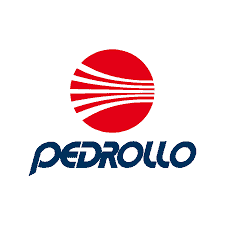Translink Corporate Finance recently held its bi-annual Directors Meeting in Miami, where dealmakers from over 20 countries gathered to discuss cross-border transactions. Translink, which celebrated 50 years of cross-border M&A excellence in 2022, is proud to cover more than 35 countries on six continents. The group attributes its success to regular interaction and strong relationships between its country offices across the globe.
Medium-sized companies in Germany, known as the ‘Mittelstand’, are facing significant succession challenges, as evidenced by recent KfW Research statistics:
Translink Corporate Finance in France and Spain have successfully established themselves in the Franco-Spanish SMID Cap M&A market in 2022 by concluding five notable transactions.
The Paris- and Barcelona-based boutiques started 2022 off strong, with the acquisition of Clevertask (Spain) by Alten Group (France) in January, followed by the Gecol acquisition (Spain) by Soprema Group (France) and Satucesa (Spain) by Baobag (France) in April.
Reusing, reducing, and recycling; carbon neutral policies and green technologies are today critical considerations that can directly impact a company’s attractiveness, reputation, and valuation. Regulatory requirements and changing consumer attitudes are among the factors contributing to this seismic shift in how companies operate now and into the future.
As the healthcare industry continues to evolve with the help of AI and technological advancements, the dream of #healthcareforall is becoming more attainable. M&A activity is playing a pivotal role in moving the industry forward through critical consolidation and sector cross-pollination.
On this Global Healthcare Day (7 April), Translink healthcare expert group co-heads, Jens Borelli-Kjær and Rebecca Zhu, share their insights on some of the AI successes they’ve seen in recent years and their forecasts for the future.
Translink turned 50 in 2022 – a landmark anniversary for the mid-market corporate finance leader. In a global market mired by the Russian Ukraine conflict, rising inflation, interest hikes, political and economic uncertainty and the COVID-19 pandemic, Translink Corporate Finance conducted significant transactions across offices spanning 6 continents.
Fast forward to 2050 and what will the global logistics sector look like? Translink Corporate Finance, in partnership with the Stellenbosch Business School’s Institute for Futures Research has explored plausible futures for the industry in its latest sector report entitled Tomorrow: 2050 Alternative Futures for Logistics. Focusing primarily on the implications for M&A, these futures are based on two critical scenario-shaping factors impacting logistics globally: climate change mitigation and the development and adoption of new technologies.
Cross-border M&A deals are strongly influenced by timing, relationships and identifying compelling opportunities. This is the story of what culminated in December 2020, when Italian family-owned company, Pedrollo Group acquired US-based Superior Pump.
While already recognised as a world-renowned brand within the electric pump sector, exporting more than 80% of its product outside of Italy, the United States represents less than 1% of Pedrollo’s global sales.
In January 2022, Translink Italy and Translink in the United States acted as the exclusive advisors on the sale of Dreno Pompe to Industrial Flow Solutions LLC (IFS). The sale enabled IFS – a leading US-based provider of industrial pumping solutions – to expand its product offering and penetrate the European market by assessing local production and supply chain capabilities as well as new sales channels in the continent.
This successful deal highlighted the many nuances of sell-side cross-border deals, as well as the advantages of using an advisor with global representation.
Leading independent M&A advisory firms BHP Corporate Finance and IMA Corporate Finance are collaborating and have officially changed their names to Translink Corporate Finance.
Translink, The leading mid-market corporate financial advisory firm, has over 300 experts covering more than 35 countries on six continents. It’s this international footprint of teams with deep local market knowledge and specialised sector expertise that enables Translink to identify M&A opportunities across the globe for clients.










